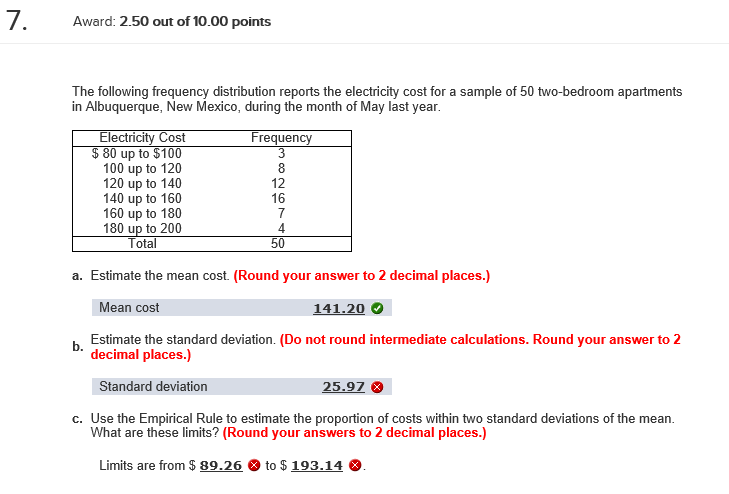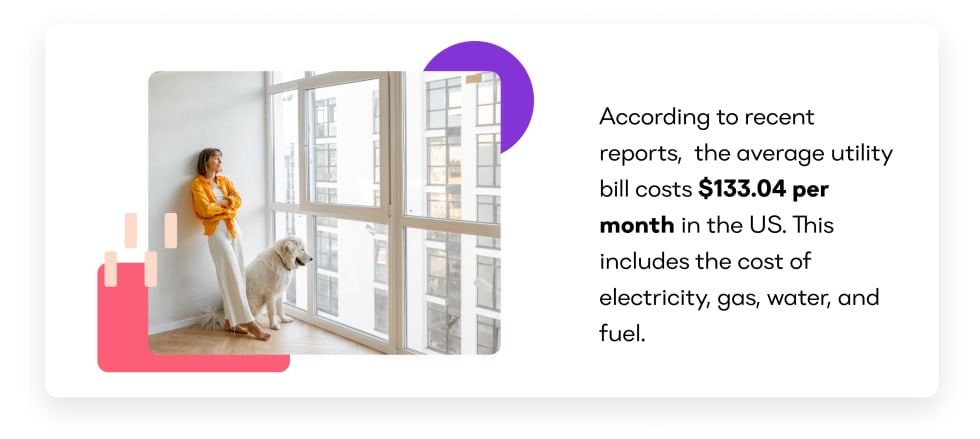Factors Influencing Electric Bill Costs

Understanding the factors that contribute to your electricity bill can empower you to make informed choices and potentially save money. While your apartment’s size and location play a role, numerous other factors significantly impact your electricity consumption.
Average Electric Bill Ranges for a 2-Bedroom Apartment
The average electric bill for a 2-bedroom apartment varies considerably based on location, climate, and energy efficiency. For example, a 2-bedroom apartment in a warm climate like Phoenix, Arizona, might have a significantly higher electricity bill than a similar apartment in Seattle, Washington, due to increased air conditioning use.
Here’s a general estimate of average electric bills for a 2-bedroom apartment in different locations:
| Location | Average Monthly Bill |
|---|---|
| Phoenix, Arizona | $150 – $250 |
| Seattle, Washington | $80 – $150 |
| New York City | $100 – $200 |
| Chicago, Illinois | $120 – $220 |
It’s important to note that these are just estimates, and your actual bill may vary depending on your energy usage habits.
Appliance Usage and Electricity Consumption
Appliances are a significant contributor to your electricity bill. The amount of energy each appliance consumes varies depending on its size, efficiency, and usage frequency. For instance, a refrigerator running continuously consumes a considerable amount of electricity, while a microwave used for a few minutes only uses a small amount.
Here are some tips for reducing appliance-related energy consumption:
- Choose energy-efficient appliances: Look for appliances with the Energy Star label, which indicates they meet certain energy efficiency standards.
- Turn off appliances when not in use: Unplug chargers, TVs, and other electronics when not in use, as they can consume “phantom” power even when turned off.
- Use appliances efficiently: Wash full loads of laundry and dishes, and avoid preheating the oven unless necessary.
Common Energy-Wasting Habits in Apartments, 2 bedroom apartment electric bill
Many everyday habits can lead to increased electricity consumption. Identifying and addressing these habits can significantly impact your energy bill.
Here are some common energy-wasting habits and tips for reducing them:
- Leaving lights on: Make a conscious effort to turn off lights when leaving a room, even for short periods.
- Using excessive heating or cooling: Set your thermostat to a comfortable temperature and use fans to circulate air instead of constantly relying on your HVAC system.
- Leaving appliances running unnecessarily: Turn off TVs, computers, and other electronics when not in use.
Cost Comparison of Heating and Cooling Systems
The type of heating and cooling system you have can significantly impact your electricity bill. Here’s a comparison of common heating and cooling systems for 2-bedroom apartments:
| System | Average Monthly Cost | Pros | Cons |
|---|---|---|---|
| Central Air Conditioning | $100 – $200 | Efficient for cooling large spaces | Higher initial installation cost |
| Window Air Conditioner | $50 – $100 | Lower initial cost | Less efficient than central air conditioning |
| Heat Pump | $75 – $150 | Provides both heating and cooling | Can be less efficient in extreme temperatures |
Impact of Insulation and Window Efficiency on Energy Bills
Insulation and window efficiency play a crucial role in regulating your apartment’s temperature and reducing energy consumption. Well-insulated apartments require less energy to heat or cool, leading to lower electricity bills.
- Proper insulation: Adequate insulation in walls, ceilings, and floors helps prevent heat loss in winter and heat gain in summer, reducing the workload on your HVAC system.
- Energy-efficient windows: Double-paned or triple-paned windows with low-emissivity coatings reduce heat transfer, minimizing the need for excessive heating or cooling.
Understanding Electricity Usage Patterns: 2 Bedroom Apartment Electric Bill

Understanding your electricity usage patterns is crucial for managing your energy consumption and minimizing your electric bill. By analyzing your appliance usage and lifestyle choices, you can identify areas where you can reduce your energy consumption and save money.
Typical Electricity Consumption of Appliances
The amount of electricity consumed by different appliances varies significantly. Here’s a table showcasing typical electricity consumption for various appliances commonly found in a 2-bedroom apartment:
| Appliance | Average Wattage | Typical Usage Hours per Day | Estimated Daily Energy Consumption (kWh) |
|—|—|—|—|
| Refrigerator | 100-200 | 24 | 2.4-4.8 |
| Dishwasher | 1,200-1,800 | 1 | 1.2-1.8 |
| Washing Machine | 500-1,000 | 1 | 0.5-1 |
| Dryer | 3,000-5,000 | 1 | 3-5 |
| Oven | 2,500-4,000 | 1 | 2.5-4 |
| Microwave | 700-1,200 | 0.5 | 0.35-0.6 |
| Television | 100-200 | 4 | 0.4-0.8 |
| Laptop | 50-100 | 4 | 0.2-0.4 |
| Lighting (10 bulbs) | 60 | 4 | 2.4 |
Lifestyle Choices and Electricity Usage
Your lifestyle choices can significantly impact your electricity consumption. Here are some examples:
* Showering habits: Taking shorter showers and using low-flow showerheads can save a considerable amount of energy.
* Laundry practices: Washing clothes in cold water and air-drying them instead of using a dryer can significantly reduce energy usage.
* Cooking methods: Using a microwave or slow cooker instead of an oven for certain meals can save energy.
* Electronics usage: Turning off electronics when not in use and using energy-efficient models can reduce electricity consumption.
* Lighting choices: Using LED bulbs instead of incandescent bulbs can significantly reduce energy usage.
Peak and Off-Peak Electricity Rates
Many electricity providers offer different rates for electricity usage during peak and off-peak hours. Peak hours are typically during the hottest or coldest times of the day when demand for electricity is high. Off-peak hours are typically during the night or early morning when demand is lower.
Peak hours usually have higher electricity rates, while off-peak hours have lower rates.
This means that using energy-intensive appliances like washing machines, dryers, and dishwashers during off-peak hours can save money on your electric bill.
Minimizing Energy Consumption
Here’s a sample daily schedule for a 2-bedroom apartment that minimizes energy consumption:
Morning:
* Use natural light as much as possible.
* Run the dishwasher during off-peak hours.
* Wash clothes in cold water and air-dry them.
Afternoon:
* Avoid using the oven for cooking.
* Use a microwave or slow cooker instead.
* Turn off lights when leaving a room.
Evening:
* Use energy-efficient appliances.
* Take shorter showers.
* Turn off electronics when not in use.
Monthly Electricity Usage Patterns
The typical monthly electricity usage pattern for a 2-bedroom apartment can be represented visually as a graph. The graph would show higher energy consumption during the summer months when air conditioning is used more frequently and lower consumption during the winter months when heating is used less frequently.
Strategies for Reducing Electric Bills

Reducing your electric bill in a 2-bedroom apartment can significantly impact your monthly expenses. By implementing strategic changes and adopting energy-efficient practices, you can save money and contribute to a greener environment. This section will delve into various strategies for lowering your electric consumption, from conducting an energy audit to leveraging smart home technology.
Conducting an Energy Audit
An energy audit helps identify areas where you’re wasting energy and provides a roadmap for improvement. Here’s a step-by-step guide to conduct a simple energy audit for your 2-bedroom apartment:
- Identify High-Energy-Using Appliances: Start by listing all major appliances in your apartment, including refrigerators, ovens, washing machines, dryers, and air conditioners.
- Track Appliance Usage: Keep a record of how frequently you use each appliance and for how long. This will give you a clear picture of your electricity consumption patterns.
- Check for Energy Leaks: Look for drafts around windows and doors, gaps in insulation, and leaky faucets. These can contribute to significant energy loss.
- Evaluate Lighting: Note the types of light bulbs you use and their wattage. Incandescent bulbs consume more energy than LED or CFL bulbs.
- Assess Heating and Cooling: Consider the efficiency of your heating and cooling systems and whether you’re using them effectively.
Energy-Efficient Appliances
Upgrading to energy-efficient appliances can significantly reduce your electricity consumption and lower your bills. However, it’s important to consider the benefits and drawbacks before making a purchase:
Benefits:
- Lower Energy Consumption: Energy-efficient appliances use less electricity to operate, leading to lower energy bills.
- Environmental Friendliness: By using less energy, you contribute to a smaller carbon footprint and reduce your impact on the environment.
- Increased Efficiency: Energy-efficient appliances often perform better and faster than older models, making tasks more efficient.
Drawbacks:
- Higher Initial Cost: Energy-efficient appliances generally have a higher upfront cost compared to standard models.
- Limited Availability: Not all appliances are available in energy-efficient versions, and finding them might require more research.
- Potential for Complexity: Some energy-efficient appliances might have more advanced features, which could require additional learning and understanding.
Energy-Saving Programs for Renters
Many utilities offer programs designed to help renters save energy and money. These programs can provide:
- Energy Audits: Some utilities offer free energy audits to help you identify areas for improvement.
- Rebates and Incentives: Utilities might offer rebates or incentives for purchasing energy-efficient appliances or making energy-saving upgrades.
- Financial Assistance: Some programs provide financial assistance to low-income renters to help them afford energy-efficient upgrades.
Reducing Electricity Consumption During Specific Seasons
Adjusting your energy usage habits based on the season can significantly reduce your electricity bill:
Summer:
- Use Fans Instead of Air Conditioners: Ceiling fans can help circulate air and keep you cool without using as much energy as air conditioners.
- Close Curtains and Blinds: Keep sunlight from heating your apartment during the hottest parts of the day.
- Use a Programmable Thermostat: Set your thermostat to a higher temperature when you’re away or sleeping to save energy.
Winter:
- Lower the Thermostat: Set your thermostat to a lower temperature when you’re away or sleeping to reduce heating costs.
- Use Warm Blankets: Wear warm clothes and use blankets to stay comfortable without relying on excessive heating.
- Seal Air Leaks: Check for drafts around windows and doors and seal any gaps to prevent heat loss.
Smart Home Devices for Optimized Energy Usage
Smart home devices can automate energy-saving measures and help you track your consumption:
- Smart Plugs: Connect appliances to smart plugs to monitor their energy usage and remotely turn them off when not in use.
- Smart Thermostats: Programmable thermostats can adjust your heating and cooling systems based on your schedule and preferences, optimizing energy usage.
- Smart Lighting: Smart bulbs allow you to control your lighting remotely and set schedules to turn lights off when not needed.
The cost of a 2 bedroom apartment electric bill can vary widely depending on factors like usage and local energy rates. If you’re looking for a more luxurious and energy-efficient option, consider exploring 2 bedroom suites in Miami Beach , which often feature modern appliances and energy-saving features that can help you reduce your overall energy consumption and potentially lower your electric bill.
The cost of a 2 bedroom apartment electric bill can vary depending on factors like the size of the apartment, the energy efficiency of appliances, and the climate. If you’re looking for a 2 bedroom apartment in Irvine, you can find a wide range of options to fit your needs and budget, 2 bedroom apartments irvine.
Once you’ve found your ideal apartment, be sure to inquire about the average electric bill so you can budget accordingly.
